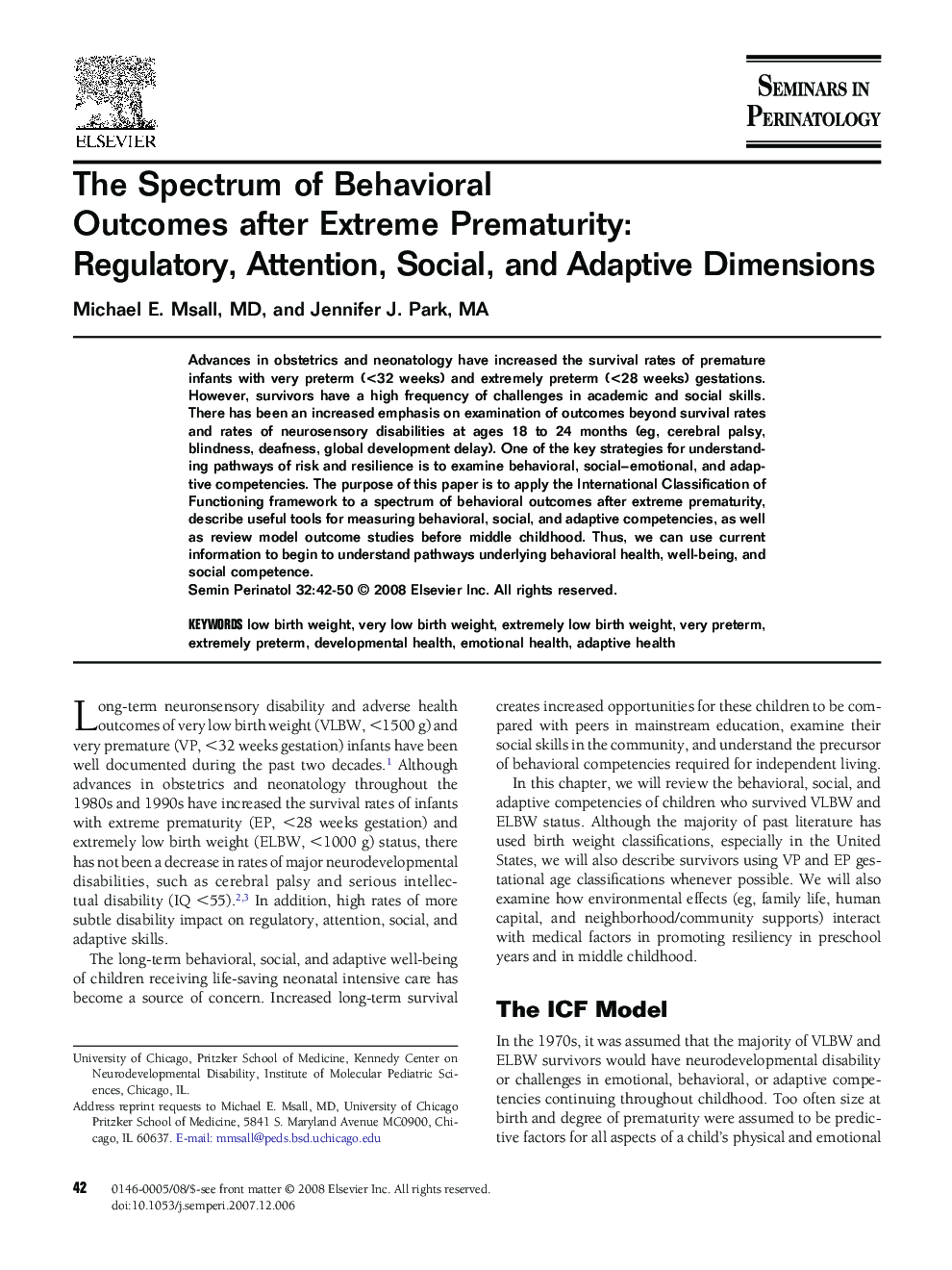| Article ID | Journal | Published Year | Pages | File Type |
|---|---|---|---|---|
| 3836894 | Seminars in Perinatology | 2008 | 9 Pages |
Advances in obstetrics and neonatology have increased the survival rates of premature infants with very preterm (<32 weeks) and extremely preterm (<28 weeks) gestations. However, survivors have a high frequency of challenges in academic and social skills. There has been an increased emphasis on examination of outcomes beyond survival rates and rates of neurosensory disabilities at ages 18 to 24 months (eg, cerebral palsy, blindness, deafness, global development delay). One of the key strategies for understanding pathways of risk and resilience is to examine behavioral, social–emotional, and adaptive competencies. The purpose of this paper is to apply the International Classification of Functioning framework to a spectrum of behavioral outcomes after extreme prematurity, describe useful tools for measuring behavioral, social, and adaptive competencies, as well as review model outcome studies before middle childhood. Thus, we can use current information to begin to understand pathways underlying behavioral health, well-being, and social competence.
